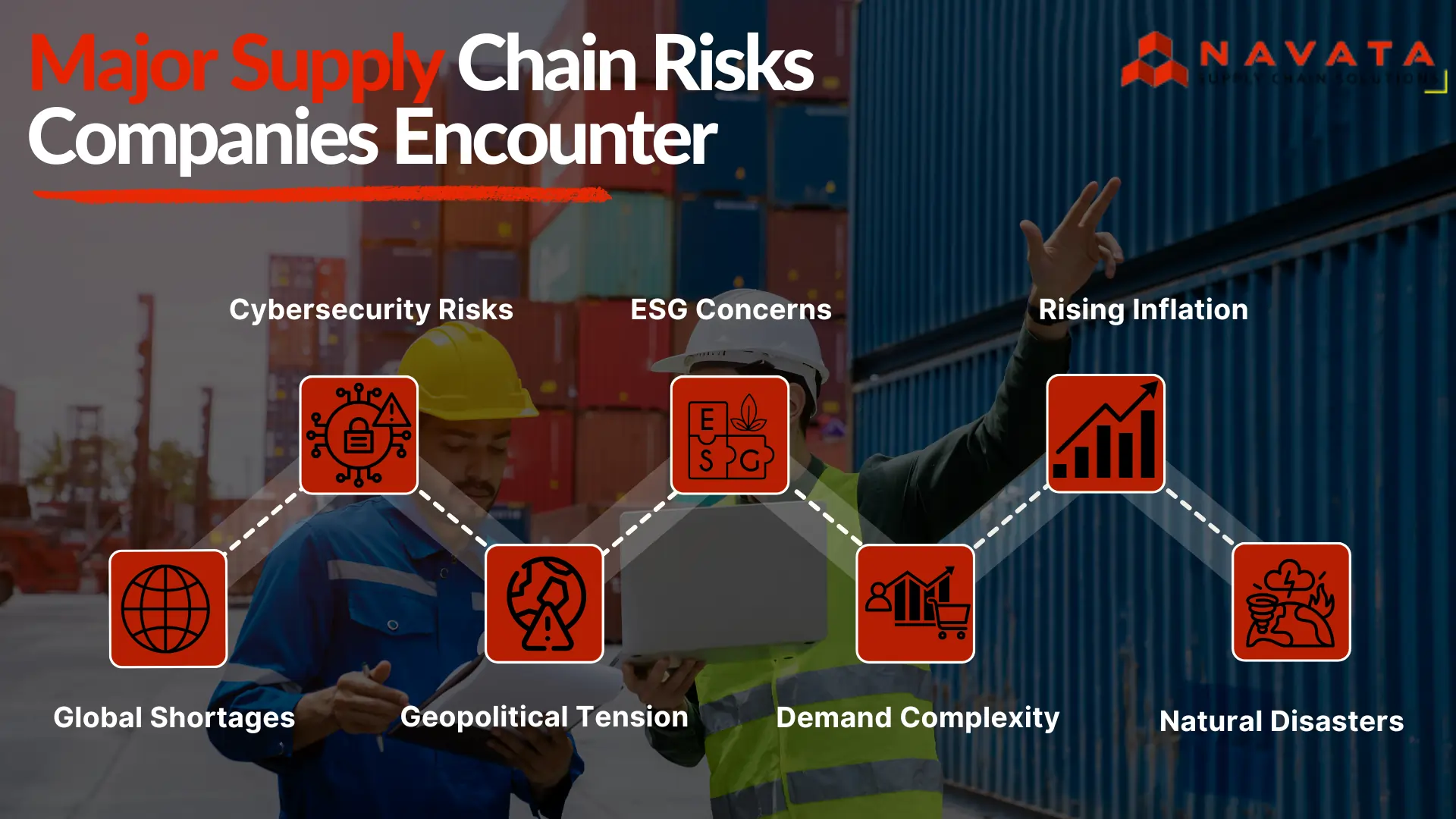Supply Chain Risks Companies Encounter
In today’s complex and interconnected world, supply chains are vital to the success of businesses. However, they are also vulnerable to various risks that can disrupt operations, cause delays, and harm customer relationships. Here are seven of the biggest supply chain risks companies face and how to manage them effectively.

1. Global Shortages
Global shortages of essential materials and components are one of the most significant dangers to industry. These shortages can be caused by geopolitical tensions, natural calamities, or unexpected events such as pandemics. They cause manufacturing delays and increased costs, affecting a company’s capacity to meet client demand. Companies must diversify their supply base, boost inventory buffers, and improve demand forecasts in order to effectively manage this risk.
2. Cybersecurity Risks
As digital technology becomes a critical facilitator of supply chain management, the risk of cyberattacks increases. A breach of vital systems, such as inventory management and logistics, can cause significant disruptions. Cyberattacks can jeopardize sensitive data, result in financial losses, and harm the business’s brand. Regular cybersecurity audits, modern security solutions, and personnel training are critical to mitigating these threats.
3. Geopolitical Tension
Geopolitical issues, such as conflict, trade wars, and political instability, may disrupt worldwide trade routes, resulting in considerable delays and cost increases. Tariffs, sanctions, and currency changes all have an impact on product pricing and availability. To prevent becoming overly reliant on a single region, businesses can consider diversifying their supplier base and explore new markets.
Boost Your Supply Chain & Minimize Risks
4. ESG Concerns (Environmental, Social, and Governance)
Environmental, social, and governance (ESG) concerns have gained traction in recent years. Consumers, investors, and regulators are calling for greater openness in sourcing and operations. Companies must focus on decreasing their carbon footprint, guaranteeing fair labor practices, and adhering to ethical norms. Failure to handle ESG problems can result in reputational harm, legal challenges, and the loss of business possibilities.
5. Demand Complexity
The continuous change of consumer preferences, along with the rise of customization, has made anticipating demand more challenging. This intricacy can lead to overstocking, capital ties, and stockouts, resulting in lost revenue and consumer unhappiness. To cope with these variations, businesses must use advanced demand forecasting techniques and construct flexible supply chains.
6. Rising Inflation
Inflation can have a considerable impact on supply chains, particularly in regions such as the India. As inflation grows, so do the costs of raw materials, labor, and transportation, raising overall manufacturing costs. Companies may struggle to sustain profit margins without passing on these costs to customers, perhaps leading to decreased demand. Additionally, inflation may cause currency instability, affecting international trade. Strategic planning and risk management are critical for reducing the impact of inflation on supply chains.
7. Natural Disasters
Natural calamities like floods, earthquakes, and storms can seriously disrupt transportation networks, interrupt production, and damage infrastructure. These incidents frequently result in delays in raw material availability and final goods distribution. To limit the impact of natural disasters on supply chains, businesses must build contingency plans, such as diversifying suppliers and ensuring other transportation routes.
Thanks For Reading: 7 Major Supply Chain Risks Companies Encounter and Solutions
Powered By 360Presence

